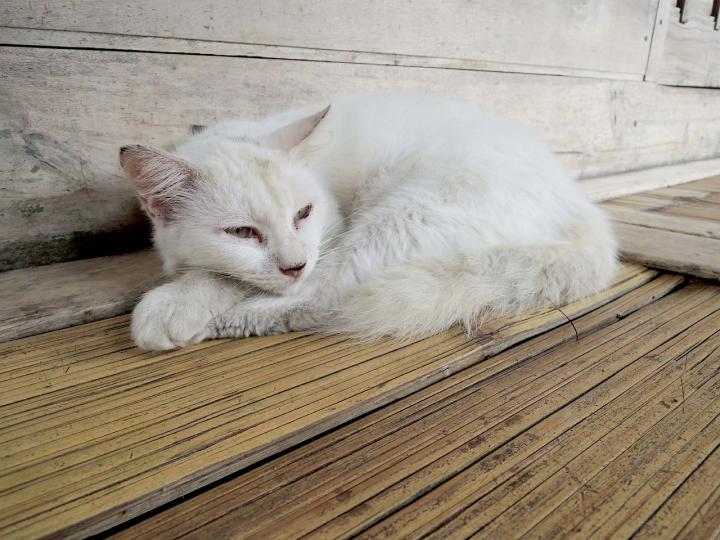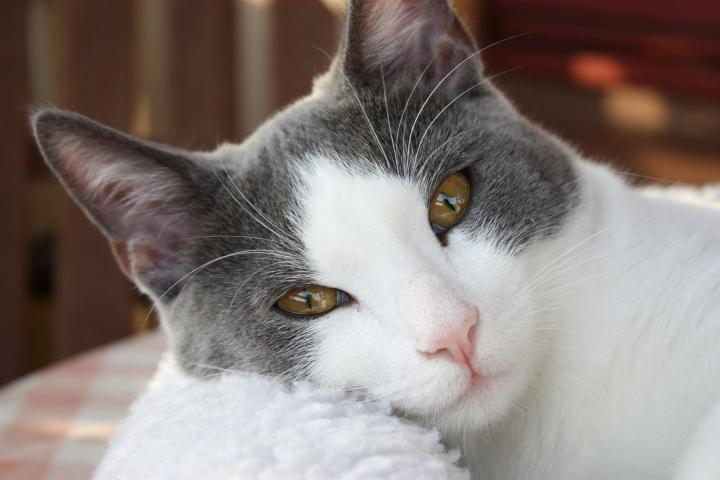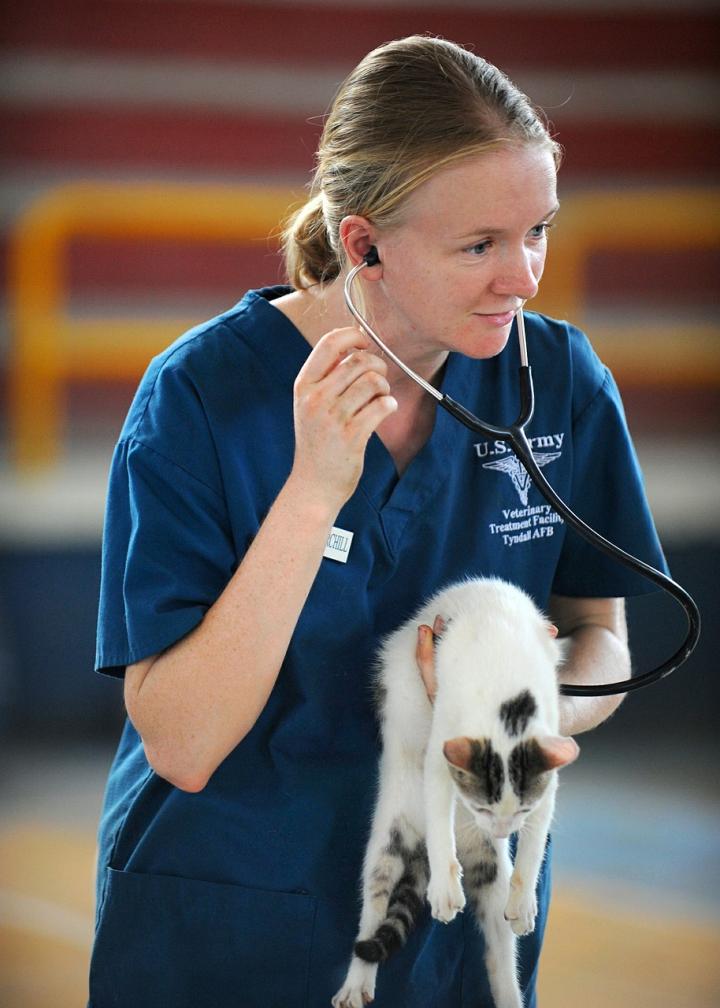Primary Image

Caption
Taking care of a pet’s health is an essential part of being a pet owner, so make sure you know these home remedies for your furry friends.
Remedies for Fleas, Dry Skin, Cuts, Skunk Spray, and More
Hey Celena!
I don't know of any vet who would advise you to cut corners and save $$ with what you have described- and in fact the opposite might occur; the cut off and dying nipple might turn gangrenous and result in a very expensive surgery and medical treatment to save your dog's life. Bite the bullet and take her to the vet please!
My 13 yr old cat pulled out one of her front claws. Following was an awful stench. After antibacterial soaks, along with peroxide & ointment it seemed ok, until another front paw had same symptoms. She then had two weeks of amoxicillin. During this time, a third rear paw became swollen & infected. Vet says it may be a bronchial cancer that spread to the feet. And an x-ray of her chest & a biopsy of her feet could be done. She is now on stronger antibiotics. Although prognosis doesn't seem good. Any advice would be helpful
Hi Ms Viscuso, I hope this comes in time to help you & your cat. If it is cancer, you can check curenaturalicancro.com with a video to watch and several links to the right, one of which is "Treatment Protocols". Doctor T. Simoncini has been treating his cancer patients for the last 20 years with Sodium Bicarbonate (Baking Soda) & having enormous succes. If you think this would be a fit for you & your cat, discuss it with your vet to see if he would be willing to do the treatments. Dr. Simoncini also has cancerisafungus.com. Both very informative sites. Frankincense oil is very good for any type of necrosis & tumors/fungal-based cancers. Helichrysm is a great healing oil & oregano oil is great for fungus, bacteria, virus. I hope that helps.
We're terribly sorry about your cat, and hope that she will be able to feel better soon. Cats normally pull on their claw sheaths to take off the top layer, which sheds. It sounds as if, however, there was an infection in the surrounding tissue. Older cats do tend to have claws that are overgrown and brittle. They may not use the scratching post as often, which means that their claws may get too long and there might be more chance of infection.
Nail bed infections can occur for various reasons, including fungal or bacterial infections, cancer, feline leukemia, immune system diseases, hyperthyroidism, ringworm, injury to the area, or cutting the nail too close to the nail bed (if you trim your cat's nails, make sure that your cut doesn't travel into the pink area of the claw, called the quick). If the infection occurs on different feet, from what we are reading, it appears likely that it might be another illness/problem that is causing the nail bed infection, which appears to be along the same lines of what your veterinarian is thinking. You might talk to your vet about which (if any) of the above illnesses, as well as any others, could be possibilities in your cat's situation.
You are certainly free to get a second opinion from another veterinarian, if you feel you should. Or, you can ask your vet if s/he could recommend a feline dermatologist, a specialist who might be more familiar with diseases of the nail bed and underlying causes.
As an alternative, you might try calling an emergency veterinary clinic in your area. They often can talk to you over the phone about what certain possibilities might be, although to make the best diagnosis, they'd have to see the cat.
Also, if there is a veterinary school in your area, you might try calling them for advice. For example, the Cornell University College of Veterinary Medicine in Ithaca, New York, is a well-respected school for veterinary medicine. It appears to be linked to the following service (we have no knowledge about it, but it looks like something to consider): The Dr. Louis J. Camuti Memorial Feline Consultation Service offers a phone consultation for a fee. After talking with you about your cat's health, they would make some recommendations of which you would then talk over with your local veterinarian. (Consultants cannot diagnose or treat your pet over the telephone.) To learn more about this service, see:
http://www.vet.cornell.edu/FHC/camuti.cfm
A veterinary university near you might offer a similar service to the public.
Hope this helps! Our thoughts are with you and your cat.
Diamataceous Earth (food grade) is a natural supplement that kills fleas and worms on contact. It works by essentially creating cracks in the pests exoskeleton, thus drying them out. Give approx 1 tbsp mixed in with food (depending on dogs size) to treat for parasites. It is natural and safe to use as both a preventative and treatment. Topically you can apply directly to fur to treat for fleas; you can sprinkle some on your dogs waste if they have worms to prevent accidental transmissions to other pets. (Although its best to just pick it up right away anyway) if you are treating for an active case of worms continue the treatment for at least 1-2 month. Since DE kills on contact with the organism only you need to be sure to continue the treatment for several larvae cycles to ensure they don't come back. Can also be used around perimeter of your house. Be sure you only use FOOD GRADE diamataceous earth, and take precautions not to inhale or let your pets inhale it. Like any small particulate it can cause lung damage if inhaled frequently.
Where do you find this diamataceous earth ? and you say it is healthy to put on your dog to help kill flea's . please and thank you pammy
As long as it's the "food grade", I can assure you nothing works better on flea's, worms and the digestive track! It's all I use on my pets!! Just sprinkle a little on their food (I use 1/4 tsp every other day for small pets) and also massage some it into their coat and ears and that's the last you will be bothered with fleas. Just make sure the fine powder doesn't go air born as it's so fine it shouldn't be inhaled.
The following site has all the info you need :) Plus, as you will see...it does wonderful things for us humans as well...I take it every day without fail. Simply amazing stuff-don't know why vet's don't let people know about it since it's 100% organic and healthy.
https://www.diatomaceousearth.com/
thomas recently went blind, i made a braclet of jingle bells, when he gets off track or turn around, a shake of the arm and gen. name and direction calling brings him on track
my pet levi had crutiet surgery and there was or looked liked after the staples were out that the skin was coming apart. this is what i did i put some tea tree oil mixed with olive oil and put on his wound, and it worked as well it is a antibacterial agent... many uses for tea tree oil















Comments